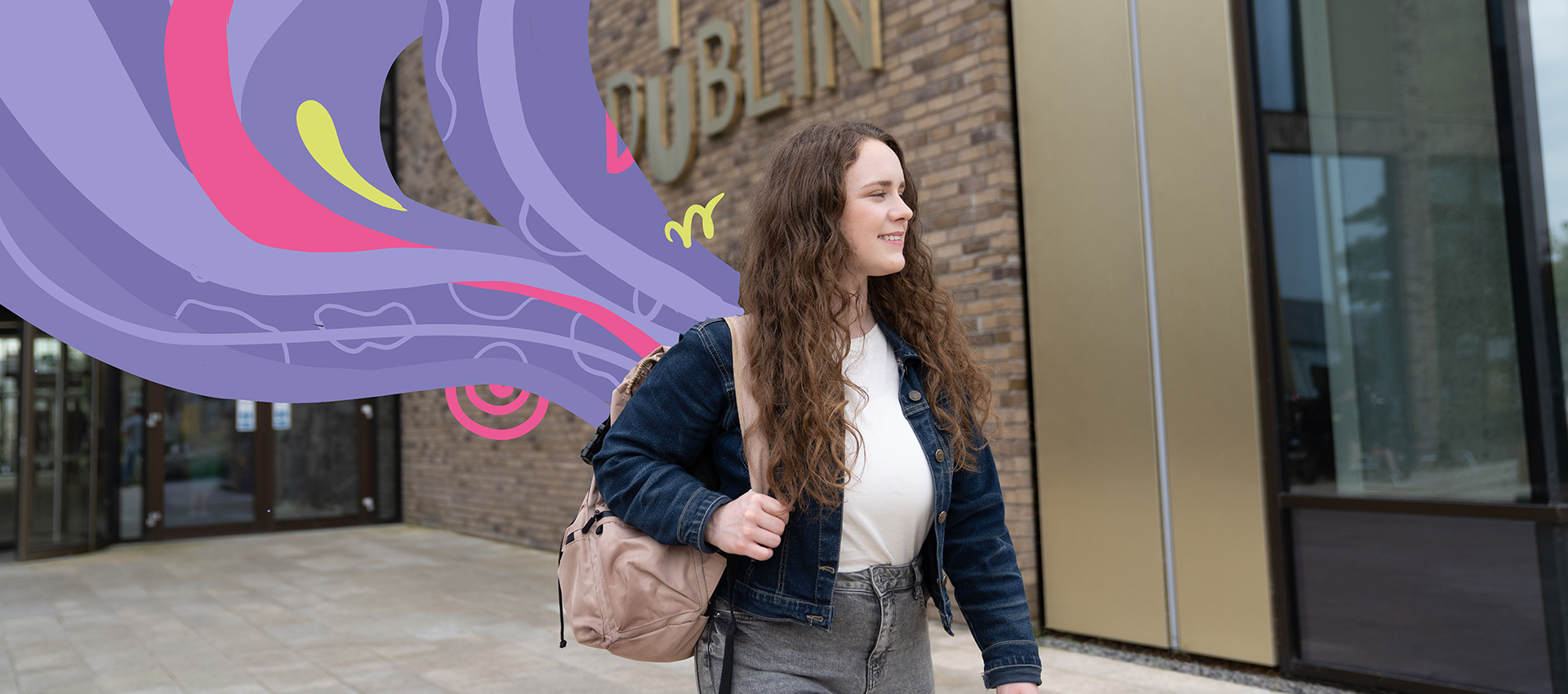Course Title: Master of Arts in Art and Environment
Delivered at Grangegorman, Bolton Street, Uillinn (West Cork) & Sherkin Island (West Cork). Developed in collaboration with Uillinn (The West Cork Arts Centre) & the Sherkin Island development society (SIDs)
The MA Art and Environment is a unique Masters programme delivered across multiple geographic sites. Run by the School of Art and Design at TU Dublin, it offers a unique opportunity for students to develop interdisciplinary study in the West Cork Archipelago. Developed in collaboration with Uillinn (The West Cork Arts Centre) and the Sherkin Island development society (SIDs), the MA Art and Environment combines post-studio practice, intellectual and historical inquiry, virtual teaching and community engagement.
Taking contemporary arts relationship with environments – ecological, spatial, political, economic – as its object of study, the MA Art and Environment instructs students in artistic research through a ‘world centered’ pedagogical framework. This framework allows specialisation within a dynamic mix of practical and critical disciplines, placing particular emphasis upon socially engaged practices within environmental contexts.
To support its diverse geographic reach, the MA Art and Environment will utilize virtual learning environments and platforms to connect isolated communities and dispersed learners.
Bachelor Degree (Honours 2.1 or above) in relevant disciplines.
If English is not your first language you will need to provide evidence of your English language proficiency as detailed on our website. Applicants for this course should have a minimum IELTS (Academic Version) English Proficiency of 6 overall (or equivalent) with nothing less than 6 in each component.
Applicants are required to include a portfolio of relevant art/design work and a one-page research proposal with their application. Both should be in PDF Format.
The MA Art and Environment is a twelve-month, full-time programme divided between three key modules, which specialize in critical mapping practices, environmental artistic research practices and socially engaged, environmental interventions. The course is designed to equip students with a historical understanding of environmental art informed by diverse geographic contexts and artistic research practices. It seeks to develop expanded research practices that intersect with scientific, environmental disciplines.
Students will benefit from expert knowledge in the field, contemporary curatorial programme in contemporary art center, embedded environmental contexts and TU Dublin technical facilities.
Key areas of practice on the MA include: Mapping: Environmental art, earth sciences; critical cartography, island studies, art practice, art history, virtual environments, digital. Sensing: Sonic cultures, culinary arts, zoology, socially engaged art, artistic research, performance art, virtual environments. Hacking: Digital culture, public art, ecological art, archipelagic studies, feminist discourses, critical pedagogy, community engagement, art intervention, decolonialism.
The final Major Project module facilitates specialisation in key areas of interest through the development of an environmental intervention that demonstrate a critical comprehension of the methodologies and the range of divergent practices that constitute contemporary environmental art practice. The MA Art and Environment provides students with the opportunity to develop environmental artistic research in island contexts with island communities.
Environmental Art 1. Mapping (25 ECTS)
This module is based on mapping the historical field of contemporary environmental art through arts based methods. They will become familiar with different interpretative and historical frameworks that shape environmental research, culminating in a critical essay.
Environmental Art 2. Sensing (25 ECTS)
Semester two module 1, will develop aesthetic explorations of environmental practice and artistic research in real world contexts, toward the realisation of the MA practice work in module 3.
Environmental Art 3. Hacking (40 ECTS)
Module 3 will introduce students to various research methods and social practices that will aid them in the development of their research project. They will become familiar with the localities and communities in which they will develop the final project.
Assessment is by final project, research portfolio and presentation. The course culminates in the completion of a major project, a critical essay and a presentation.
For more details visit the course website: www.art-environment.com
Semester 1
The course is full-time and students will take a total of 30 credits of coursework per semester.
Applications for this course are now open.
For further information on the application process, please visit How To Apply.
This course takes place over the following campuses:
TU Dublin Grangegorman, Dublin 7 and TU Dublin Bolton Street, Dublin 1.
Uillinn, West Cork Arts Center, Skibbereen, West Cork.
Sherkin Island Community Center, Sherkin Island

